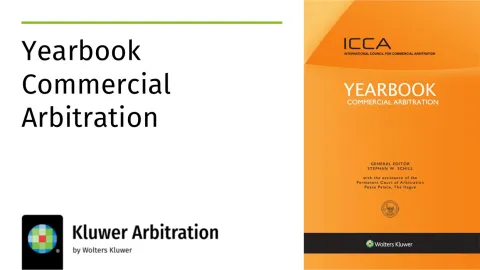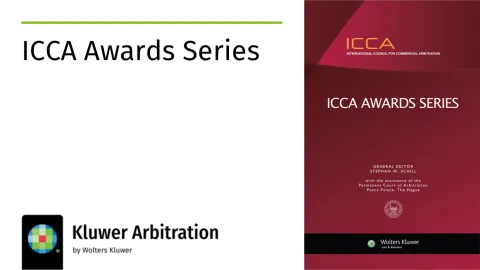For Now, the California Arbitration Act Does Not Disfavor Arbitration
October 2, 2025
The California Supreme Court’s recent opinion in Hohenshelt v. Superior Court has the potential for far reaching consequences, and specifically for international arbitration in California. While the dispute in Hohenshelt was a domestic employment litigation, the decision matters to international arbitration practitioners because the court incorporated equitable principles in its analysis of the local California Arbitration Act (CAA) to avoid federal preemption. Ordinarily, state laws that impede international arbitration are “preempted” by the Federal Arbitration Act (FAA), but the Court notably held that the CAA was not preempted because equitable principles embedded in the CAA allowed them to avoid an unfavorable result for the underlying arbitral process.
The Court’s analysis has far-reaching consequences for international arbitration: whenever a California procedural measure applies to an arbitral proceeding seated in the state—whether parties are California employment litigants or multinational arbitration counterparties—the same interplay is triggered, potentially upending commercial expectations and drafting intent in choosing arbitration. With this assimilation of equitable relief, unless and until the United States Supreme Court says otherwise, the California Supreme Court declared that the CAA does not disfavor arbitration.
The FAA Does Not Preempt Section 1281.98 of the CAA
Dana Hohenshelt was employed by Golden State Foods Corporation, headquartered in California. As a condition of employment, Hohenshelt signed an arbitration agreement requiring employment-related disputes to be resolved through arbitration governed by the Federal Arbitration Act. After reporting alleged workplace harassment and subsequent retaliation, Hohenshelt was terminated, and filed a lawsuit against Golden State Foods, which was compelled to arbitration. During the arbitration, Golden State Foods failed to pay required arbitration fees within the thirty-day deadline required under the CAA, citing the arbitrator’s notice of unavailability and counsel’s paternity leave. Hohenshelt moved to withdraw from arbitration and proceed in court, arguing that the employer’s late payment constituted a material breach under California Code of Civil Procedure, section 1281.98, which requires payment of arbitration fees within 30 days or waiver of the right to compel arbitration. The trial court denied the motion. The Court of Appeal reversed, finding that Golden State Foods’ payment was untimely and constituted a material breach.
The California Supreme Court granted review to address an inconsistency among lower California appellate courts concerning whether section 1281.98 disfavors arbitration and is therefore preempted by the FAA.
The majority concluded that section 1281.98 is not preempted by the FAA. The court rejected arguments that the statute targets arbitration for special burdens, emphasizing that the thirty-day deadline aims to facilitate rather than frustrate the arbitration process by deterring strategic non-payment of fees. The ruling walks a line between U.S. states’ ability to experiment with and innovate arbitration procedure, while federal preemption doctrine polices the boundary to ensure arbitration is not disfavored in the United States. Mindful of this federal-state interplay, the Court did not wholesale adopt the view of some of the lower courts that section 1281.98 is an unyielding “hair-trigger.” Instead, the justices harmonized the statute with long-standing equitable doctrines to avoid doubt and ensure equal treatment of arbitration clauses and other contracts. Along with the rest of the California Civil Code, equity was statutorily codified in 1872. California Civil Code, section 3275, provides that a party who would otherwise suffer a forfeiture for contractual non-performance may be relieved where the breach was not willful, grossly negligent, nor fraudulent, and where full compensation is made.
The resulting rules are nuanced. First, time is of the essence for paying agreed employee or consumer arbitration costs, unless the failure is the result of mistake, inadvertence, or excusable neglect. Second, relief from forfeiture is available where the delay is non-strategic and the other party can be made whole. Third, willful, grossly negligent, or bad-faith non-payment remains a material breach that triggers the statutory waiver. Thus, section 1281.98 survives FAA preemption because the California Supreme Court read into it the same equitable safety valves that apply to contracts in general.
Equity, Arbitration, and Potential Consequences of Hohenshelt
Hohenshelt has the potential to reach beyond employment or consumer arbitrations because it imports section 3275 equity into arbitration law generally. The majority reasoned that, although section 1281.98 declares a “material breach” if payment is thirty-one days late, the legislature did not explicitly displace background equity principles. Citing a lack of the phrase “notwithstanding any other law” in the CAA provision, the Court held that California Civil Code, section 3275, remains available to excuse non-performance in appropriate cases. This move produces two potential consequences.
First, by treating the requirements to pay arbitration fees as a “contractual obligation” excusable under section 3275, the Court does not consider any separability of the arbitration clause. With the breach and resulting equitable waiver operating on the arbitration clause, general contractual legal concepts and precedents are woven into an arbitration clause analysis. The opinion sidesteps this tension but hints that, because the obligation to pay fees “arises from the operation of law,” defenses under section 3275 can target the forfeiture without rewriting the agreement to arbitrate. In international practice, where the doctrine of separability is a bedrock concept, Hohenshelt shows that California courts may be willing to recognize and reference contract-level remedies to enforce clause-level consequences, even as applied to arbitration clauses.
Second, the Court appears to make a categorial statement at page 15 of the opinion, whereby “[i]t is true that the text of section 1281.98 says without exception that if a drafting party does not make timely payment, it ‘is in material breach of the arbitration agreement’ is in default of the arbitration, and waives its right to compel [arbitration]’.” However, in rereading the statute through the lens of section 3275, the Court effectively inserts a reasonableness inquiry. This raises another potential far-reaching consequence whereby, even in international arbitrations seated in California, arguments may proceed under equity in a way that was arguably foreclosed by literal statutory text, i.e., a potential softening of procedural rigidity.
Looking Forward
Many international arbitrations seated in California rely on the New York Convention and Chapter 2 of the FAA. However, procedural issues can still be governed by state law. The majority’s methodology—which reads state statutes against a backdrop of equitable defenses to avoid preemption—may influence how California courts assess other state-law measures that indirectly touch international arbitration.
In cross-border practice, the doctrine of separability often determines which law applies to issues of validity and performance. Hohenshelt demonstrates that a California Civil Code section can excuse breach of an obligation, even when that obligation specifically concerns the arbitration clause (e.g., multi-tiered dispute resolution clauses). In turn, this may embolden parties to argue that other state-law equitable doctrines can impugn arbitration clauses, even in international agreements. This is a subtle but potentially significant shift.
However, because Hohenshelt revolves around federal preemption—i.e., a question of federal law—a certiorari petition to the United States Supreme Court remains possible. Two California Supreme Court justices rendered a dissenting opinion in Hohenshelt. The Ninth Circuit split from California in Belyea v. Greensky, finding that section 1281.98 is preempted by the FAA. Whether on petition for certiorari from Hohenshelt or through another case, conflicts between state high courts and federal courts are a classic trigger for further review. The United States Supreme Court could decide to what degree California can continue to innovate in arbitration procedure without overstepping federal boundaries.
Conclusion
Hohenshelt represents the most definitive word to date that the CAA does not violate the equal treatment mandate of the FAA. This is in large part because the California Supreme Court harmonized the statute with equitable doctrines like California Civil Code, section 3275. This decision highlights two enduring realities for international arbitration practitioners. California procedural innovations will continue to push against the boundaries of the FAA and federal preemption remains the ultimate arbiter. Today’s clarity may yet face tomorrow’s United States Supreme Court review. For now, the California Arbitration Act does not disfavor arbitration.
You may also like












Jeff Daar
A reminder for everyone that California has two separate arbitration statutes - one domestic, one international. The domestic statute does not apply to international arbitration. In 1988, California enacted the first international arbitration statute in the United States, the “California International Arbitration and Conciliation Act”(“CIACA”). It is based on the UNCITRAL Model Law on International Commercial Arbitration. The international arbitration statute, CIACA, is at California Code of Civil Procedure §§ 1297.11, et seq.
Peter Rundle
Recall, however, that international arbitrations seated in California are subject to the Arbitration and Conciliation of International Disputes Act (CA Civ Pro Code, Sections 1297.11, et seq.,), based upon the UNCITRAL Model Law, and not the California Arbitration Act.